Try as they might, ‘Hands Up’ underscores that whites just don’t know what it’s like to be black
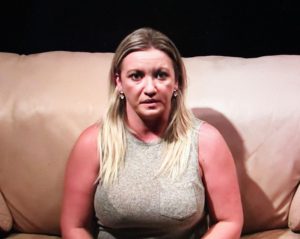 On June 11, The Best Seats in Your House screened a virtual play titled Hands Up starring Nemo Philor and Dena Galyean. They play an inter-racial couple reacting to the shooting death of Michael Brown in Ferguson, Missouri. He feels that it’s imperative that he participate in the protests enveloping the city in the aftermath of the shooting. She wants to be supportive, but is afraid for his life – and, frankly, she just doesn’t get why her husband feels as strongly
On June 11, The Best Seats in Your House screened a virtual play titled Hands Up starring Nemo Philor and Dena Galyean. They play an inter-racial couple reacting to the shooting death of Michael Brown in Ferguson, Missouri. He feels that it’s imperative that he participate in the protests enveloping the city in the aftermath of the shooting. She wants to be supportive, but is afraid for his life – and, frankly, she just doesn’t get why her husband feels as strongly 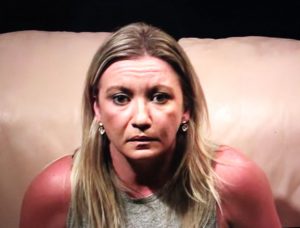 as he does. Their relationship is based on love. Of that there’s no doubt. However, while love may be blind, he’s black and she’s white. What emerges from their ensuing discussion, which become strident at times, is that try as she might, she has no idea what it’s like to be an African-American living in white society – or the depth of the injustice he feels over the fate suffered by Michael Brown and faced every
as he does. Their relationship is based on love. Of that there’s no doubt. However, while love may be blind, he’s black and she’s white. What emerges from their ensuing discussion, which become strident at times, is that try as she might, she has no idea what it’s like to be an African-American living in white society – or the depth of the injustice he feels over the fate suffered by Michael Brown and faced every 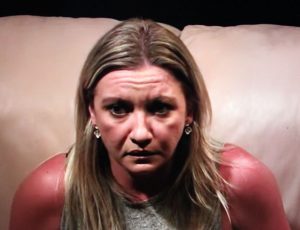 day in so many ways by black men as they pick their way through the minefield laid down by white society.
day in so many ways by black men as they pick their way through the minefield laid down by white society.
Interestingly, this was the very topic of Terry Gross’ interview of Kristen Howerton that aired yesterday (June 18) on Gross’ nationally-syndicated radio show Fresh Air. Howerton is author of Rage Against the Minivan, which is also the name of the blog 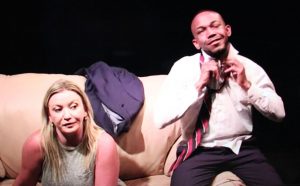 she created several years ago. She is also the white mother of two black sons, who she adopted after suffering several miscarriages and being told by doctors that she couldn’t carry to full term. Of course, as so often happens, she subsequently did have two children, both girls. Although she thought she was prepared for the
she created several years ago. She is also the white mother of two black sons, who she adopted after suffering several miscarriages and being told by doctors that she couldn’t carry to full term. Of course, as so often happens, she subsequently did have two children, both girls. Although she thought she was prepared for the 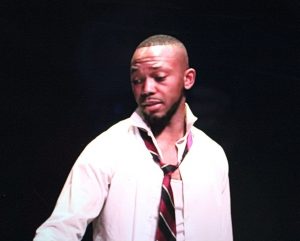 challenges of raising two black children, she was shocked by the deep disparity in the way in which white society sees and perceives her sons in comparison to the way in which it sees and perceives her daughters.
challenges of raising two black children, she was shocked by the deep disparity in the way in which white society sees and perceives her sons in comparison to the way in which it sees and perceives her daughters.
In this regard, Howerton’s has had conversations with her sons that aren’t necessary in connection with the girls.
“[T]here is intense 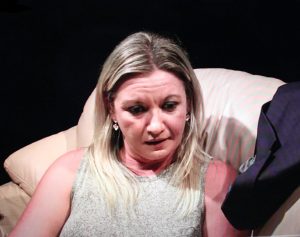 bias against black men and intense violence at the hands of police officers, not every police officer but very disproportionately,” Howerton told Gross during the segment. “And so we have had those conversations since the boys were much younger of just what do you do when you’re pulled over and how do you interact with police officers and what do you do if you feel you’re being accused of something you didn’t do …. And it’s confusing
bias against black men and intense violence at the hands of police officers, not every police officer but very disproportionately,” Howerton told Gross during the segment. “And so we have had those conversations since the boys were much younger of just what do you do when you’re pulled over and how do you interact with police officers and what do you do if you feel you’re being accused of something you didn’t do …. And it’s confusing 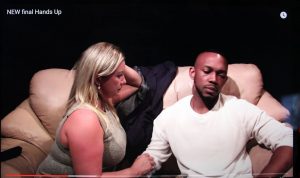 because you know, we are giving our children messages around, you know, in life in general most parents are giving kids messages of stand up for yourself and, you know, be bold and be assertive. But for parents of black children, we then have to say but but, right? Like, but in these situations, don’t be bold. Don’t be assertive. Be compliant. You know, listen to
because you know, we are giving our children messages around, you know, in life in general most parents are giving kids messages of stand up for yourself and, you know, be bold and be assertive. But for parents of black children, we then have to say but but, right? Like, but in these situations, don’t be bold. Don’t be assertive. Be compliant. You know, listen to 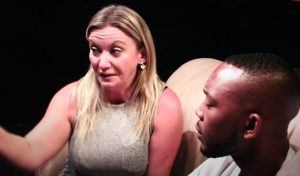 instruction. If you’re being accused of something that you didn’t do, you know, just be kind.”
instruction. If you’re being accused of something that you didn’t do, you know, just be kind.”
Like black mothers, Howerton has experienced the fear that in spite of such instruction, her sons could fall victim to police or other violence just like Michael Brown, 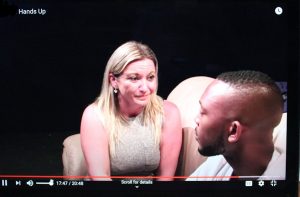 Eric Garner, George Floyd or Ahmaud Arbery. But she’s also experienced the opposite – teachers and other parents so eager to prove to themselves and her that racism is over that they claim to be completely colorblind.
Eric Garner, George Floyd or Ahmaud Arbery. But she’s also experienced the opposite – teachers and other parents so eager to prove to themselves and her that racism is over that they claim to be completely colorblind.
“I think there’s a well-meaning intent behind it, but it’s also very hurtful because if we’re perpetuating the idea of colorblindness, 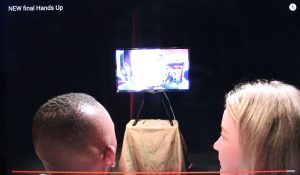 then first of all, we’re not seeing the fullness of other people and their experience, but then, second, it gives us an opportunity to deny real experiences of racism and to deny that people of color are having a very different experience in the world than we are. So I think colorblindness is very misguided,” Howerton
then first of all, we’re not seeing the fullness of other people and their experience, but then, second, it gives us an opportunity to deny real experiences of racism and to deny that people of color are having a very different experience in the world than we are. So I think colorblindness is very misguided,” Howerton 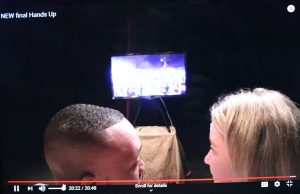 explained.
explained.
While misguided, this “over-correction” pales in comparison to the exclusion, hostility and outright racism experienced by other adoptive white parents of children of color. Last April (2019), the Fort Myers Film Festival screened Black, White & US by director Loke Mulholland. The 75-minute documentary  explores racism in America through the lives of four white families who adopted African American children and had to overcome their own inherent biases in order to become effective advocates for their kids.
explores racism in America through the lives of four white families who adopted African American children and had to overcome their own inherent biases in order to become effective advocates for their kids.
“The experience of coming to terms with one’s own inherent racism 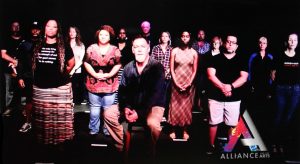 in order to successfully lead your child of color through a white world is just one of the many important aspects of this film,” said Howard Noel after watching the film. “It holds up to our eyes the reality of white privilege and shows us, who have it, that we really don’t understand what it is and
in order to successfully lead your child of color through a white world is just one of the many important aspects of this film,” said Howard Noel after watching the film. “It holds up to our eyes the reality of white privilege and shows us, who have it, that we really don’t understand what it is and  how it works. However, viewing this documentary helps us greatly to come to that understanding and more importantly, an understanding of what young people of color feel, experience, and fear while going through each stage of life as a person of color in a white world.”
how it works. However, viewing this documentary helps us greatly to come to that understanding and more importantly, an understanding of what young people of color feel, experience, and fear while going through each stage of life as a person of color in a white world.”
In order to gain this level of understanding, however, Kristen Howerton found that she first had to come to an appreciation that being white is also a race and a culture, replete with its own set of values, norms and 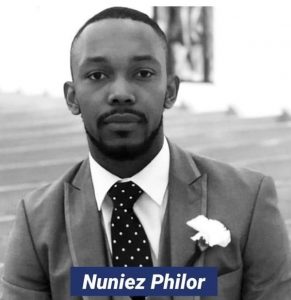 behaviors.
behaviors.
“We are not just a default,” Howerton points out. “[T]hink of how we use the term ethnic. We use the term ethnic to describe something that’s not white, right? Ethnic food means it’s a food from another country. And I think I had to come to terms with the idea that, like, whiteness is its own ethnicity and culture. And I had to figure out what that looked like for myself.”
And for her sons.
It’s a profound insight.  Just as Gen Z might look incredulously at their grandparents and say (or think) “Okay Boomer,” people of color are also often justifiably puzzled, befuddled and frustrated by their white counterparts’ lack of awareness and understanding of their own social and racial biases.
Just as Gen Z might look incredulously at their grandparents and say (or think) “Okay Boomer,” people of color are also often justifiably puzzled, befuddled and frustrated by their white counterparts’ lack of awareness and understanding of their own social and racial biases.
And that same, profound message is what came shining through Hands Up thanks to Bill Taylor’s informed direction, Nemo Philor and Dena Galyean’s raw, honest and open performances as Mason and Maryann, and playwright Kristy Thomas’ brilliant script.
Thomas specializes in short one-act plays, short stories and poetry, 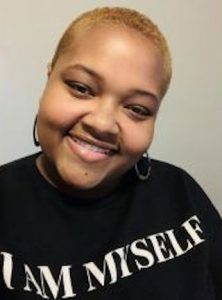 which she publishes through her own literary and publishing company, Always Writing 4 U (www.alwayswriting4u.com), which operates under the tagline, “Tell your story. It is the best story ever told.” Kristy also teaches high school theater and speech and previously worked in at a charter high school and community college in Los Angeles, CA as an acting coach before moving to Kansas City, MO in 2019.
which she publishes through her own literary and publishing company, Always Writing 4 U (www.alwayswriting4u.com), which operates under the tagline, “Tell your story. It is the best story ever told.” Kristy also teaches high school theater and speech and previously worked in at a charter high school and community college in Los Angeles, CA as an acting coach before moving to Kansas City, MO in 2019.
June 19, 2020.














 Tom Hall is both an amateur artist and aspiring novelist who writes art quest thrillers. He is in the final stages of completing his debut novel titled "Art Detective," a story that fictionalizes the discovery of the fabled billion-dollar Impressionist collection of Parisian art dealer Josse Bernheim-Jeune, thought by many to have perished during World War II when the collection's hiding place, Castle de Rastignac in southern France, was destroyed by the Wehrmacht in reprisal for attacks made by members of the Resistance operating in the area. A former tax attorney, Tom holds a bachelor's degree as well as both a juris doctorate and masters of laws in taxation from the University of Florida. Tom lives in Estero, Florida with his fiancee, Connie, and their four cats.
Tom Hall is both an amateur artist and aspiring novelist who writes art quest thrillers. He is in the final stages of completing his debut novel titled "Art Detective," a story that fictionalizes the discovery of the fabled billion-dollar Impressionist collection of Parisian art dealer Josse Bernheim-Jeune, thought by many to have perished during World War II when the collection's hiding place, Castle de Rastignac in southern France, was destroyed by the Wehrmacht in reprisal for attacks made by members of the Resistance operating in the area. A former tax attorney, Tom holds a bachelor's degree as well as both a juris doctorate and masters of laws in taxation from the University of Florida. Tom lives in Estero, Florida with his fiancee, Connie, and their four cats.